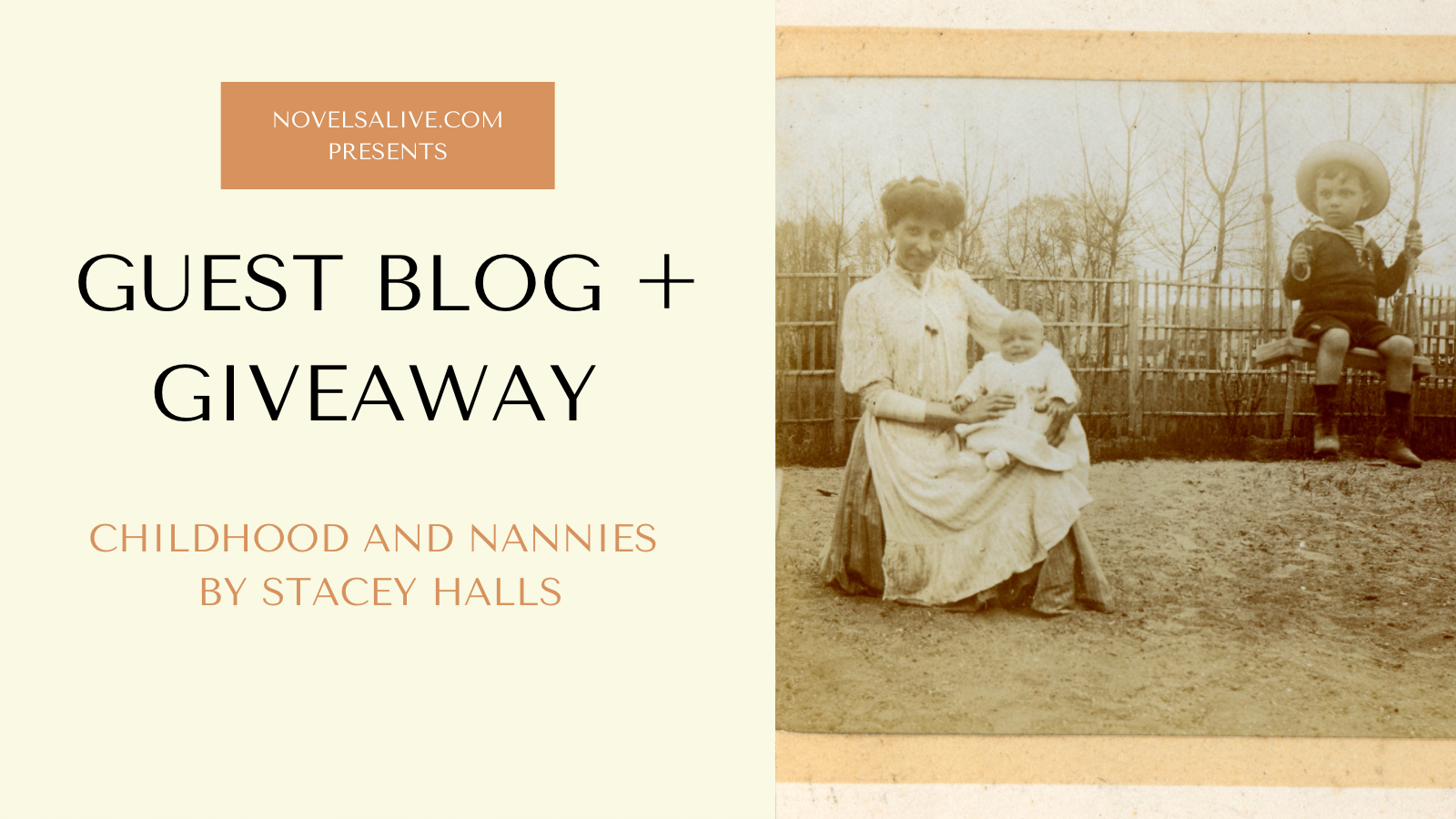 Though children have been around since the dawn of time, childhood is a relatively new concept, invented by the Edwardians. In the early 20th century, children were brought out from the attic rooms they’d been confined to for centuries, dusted off and pushed blinking into the spotlight of culture, literature, and advertising. Even the words ‘Edwardian childhood’ evoke nostalgic images of gaslit nurseries, nannies in frilly aprons, rocking horses, Peter Pan, Mary Poppins, straw boaters, picnics, The Railway Children and Mary Lennox in her secret garden.
Though children have been around since the dawn of time, childhood is a relatively new concept, invented by the Edwardians. In the early 20th century, children were brought out from the attic rooms they’d been confined to for centuries, dusted off and pushed blinking into the spotlight of culture, literature, and advertising. Even the words ‘Edwardian childhood’ evoke nostalgic images of gaslit nurseries, nannies in frilly aprons, rocking horses, Peter Pan, Mary Poppins, straw boaters, picnics, The Railway Children and Mary Lennox in her secret garden.
When I had the idea to write a story about a nanny who is witness to an odd family dynamic, with a distant, withdrawn mistress and jovial, charming master, I knew at once that it would be set in this period. Perhaps it was my own love of Mary Poppins, the much-loved tale of the nanny who arrives on Cherry Tree Lane with her carpet bag and saves a family from ruin.
What if, I thought, she can’t put her finger on what’s wrong, and doesn’t know what she’s saving them from? What if her mistress is not at all the angel of the house she expects, and the children’s father unconventionally manages the day-to-day running of the house? What if she’s really good at her job but is totally out of her depth?
When I scratched the surface of some of my favourite Edwardian-set literature, I realised this dark vein ran through all of them. On the surface Mary Poppins is all carousels and feeding the birds, but really the story follows a family on the brink of bankruptcy, with an absent political activist mother and a preoccupied father.
The Secret Garden, a favourite novel of mine as child, features a whole raft of child trauma: Mary loses both her parents (who never wanted her) to cholera, and is forced to move from India to England, a country she has never visited, to live with a distant, depressive uncle who also rejects her. Deprived of love and attention, she finds peace in a garden, and discovers an invalid cousin who has been shut inside his entire life. As a six-year-old I skipped over the serious parts, only seeing the cute lambs, knitted berets and kindly nursemaid Martha. Surely The Railway Children was not so gloomy on second glance? Nope—the father is wrongfully imprisoned, pushing the family into shame and rural poverty. I thought it was a story about shiny trains and a lovely old man who waved at them.
As a writer, I’m always on the lookout for tension, because therein lies the best story. And as a historical writer, I set a lot of my work in the home, because where are you going to find more tension? In middle and upper class homes, aside from the male head of the household, everyone was at home all the time. The average Edwardian house had six to ten servants, several children, a master, a mistress and most likely a roster of tradespeople calling at the back door: butchers’ boys, knife grinders, window cleaners.
Traditionally, we assume the nursery to be a place of safety and security, the nanny a figure of caregiving and authority. In so much of literature throughout the 19th and early 20th centuries, the nanny is a benevolent, benign creation, there in the background to cajole the children to bed or mop up a scratch. Sometimes they don’t even have names, referred to merely as Nanny or Nurse. They are part of the family but also separate; in some ways a servant but technically not. They sleep in the house with the children and do not eat with the domestic staff.
What a strange, lonely place to occupy, hovering while the children are with their parents, overhearing things, forming opinions and allegiances. The automatic tension of that position—a mini mother, doing the heavy lifting of child-rearing—is ripe for fiction. Some of my favourite novels have a streak of ambiguity running through them, where nothing is straightforward and the ground shifts constantly; novels and films that influenced Mrs. England were My Cousin Rachel, Jane Eyre and Gaslight.
Why would a young woman, with every opportunity afforded to her in a modern world of factory, shop and clerk work, choose such an old-fashioned job? Well into the 20th century nannies lived far from home, spending all of their time with a family not their own, caring for children 24/7. Then it occurred to me: to be a nurse is to have a second childhood, to parent others but also yourself. It’s the shedding of your birth family and the adoption of another.
Perhaps some were drawn to the safety and security of a middle-class nursery because it afforded a life like those portrayed in the books and magazines of the time. But of course, nothing is ever as perfect as it is in fiction; there is always the dark streak, as many young women in vulnerable positions would have found out. My protagonist Nurse May is one such young woman, who is able to tie her pinafore and become a different person, leaving her past firmly buried. But that’s the thing with the past: no disguise fools it, no location is too remote, and it always catches up with you eventually.

Publication Date: June 10, 2021
 When newly graduated nurse Ruby May takes a position looking after the children of Charles and Lilian England, a wealthy couple from a powerful dynasty of mill owners, she hopes it will be the fresh start she needs. But as she adapts to life at the isolated Hardcastle House, it becomes clear there’s something not quite right about the beautiful, mysterious Mrs England. Ostracised by the servants and feeling increasingly uneasy, Ruby is forced to confront her own demons in order to prevent history from repeating itself. After all, there’s no such thing as the perfect family – and she should know.
When newly graduated nurse Ruby May takes a position looking after the children of Charles and Lilian England, a wealthy couple from a powerful dynasty of mill owners, she hopes it will be the fresh start she needs. But as she adapts to life at the isolated Hardcastle House, it becomes clear there’s something not quite right about the beautiful, mysterious Mrs England. Ostracised by the servants and feeling increasingly uneasy, Ruby is forced to confront her own demons in order to prevent history from repeating itself. After all, there’s no such thing as the perfect family – and she should know.
Simmering with slow-burning menace, Mrs England is a portrait of an Edwardian marriage, weaving an enthralling story of men and women, power and control, courage, truth and the very darkest deception. Set against the atmospheric landscape of West Yorkshire, Stacey Halls’ third novel proves her one of the most exciting and compelling new storytellers of our times.


[rafflepress id=”83″]

 Stacey Halls grew up in Rossendale, Lancashire. She studied journalism at the University of Central Lancashire and has written for publications including the Guardian, Stylist, Psychologies, the Independent,
Stacey Halls grew up in Rossendale, Lancashire. She studied journalism at the University of Central Lancashire and has written for publications including the Guardian, Stylist, Psychologies, the Independent,


















